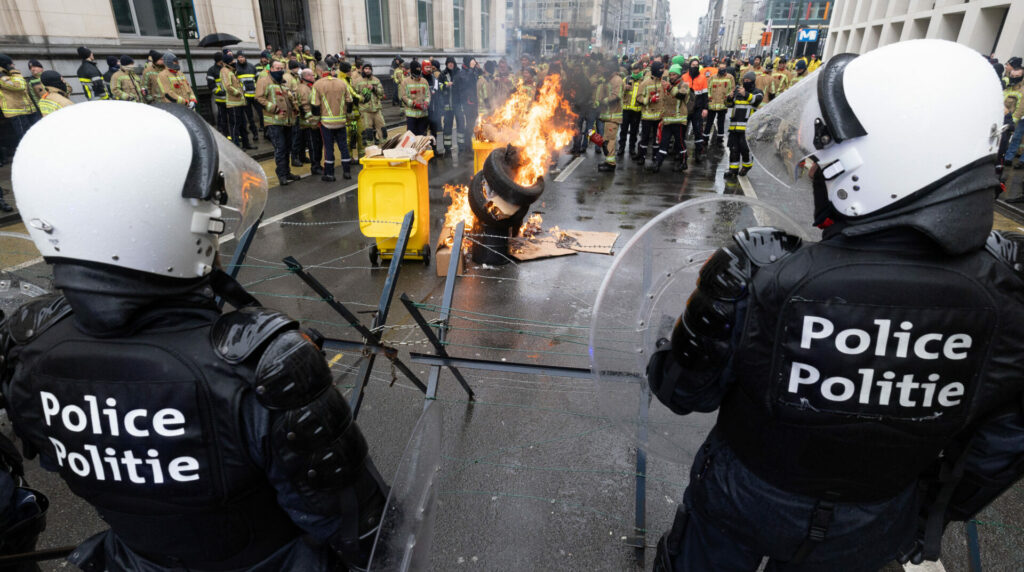Two journalists have conducted a "behind-the-scenes" investigation into the Belgian police and found an institution "contaminated from the inside by racist and violent misconduct".
After carrying out an investigation over the past five years, journalists Philippe Engels and Thomas Haulotte have released "Dirty Cop" (Sale flic in French), a book that reveals a litany of professional malfeasance within the service.
"Dirty Cop" examines the Belgian police's excessive violence, notably on 24 January 2021 when a demonstration took a turn for the worse in Brussels and the authorities arrested demonstrators en masse, many of whom were minors. Several testimonies denounce beatings and sexist and racist insults in the cells of the Etterbeek barracks.
The journalists revealed that those police officers who try to speak up about abuse, harassment and impunity in the institution are professionally shunned.
They also highlighted several suspicious deaths of citizens – both in cells and on the street – which implicated the police force. Usually presented as natural deaths, accidents or suicides, these have caused public outrage and have contributed to a growing sense of fear and hatred towards law enforcement, characterised by an increase in violence towards the police.
Related News
- Police shooting of psychiatric patient in Brussels may have been racist, activist claims
- Police officer filmed beating young man with baton in Saint-Josse
- Clashes and damage at Paris May Day protests
In what Engels and Haulotte call a "disoriented" Belgian police force, false reports are commonplace and police officers regret not being able to focus their efforts on fighting organised crime. Some leave the profession, others have taken their own lives due to overwhelming levels of stress at work.
The investigation questions the general state of the Belgian police and points to deep-rooted dysfunction. Authoritarian drifts during demonstrations in Brussels, deaths in intervention or in cells, and increased surveillance in certain neighbourhoods of the capital or in Antwerp are the most contentious points it raises.

